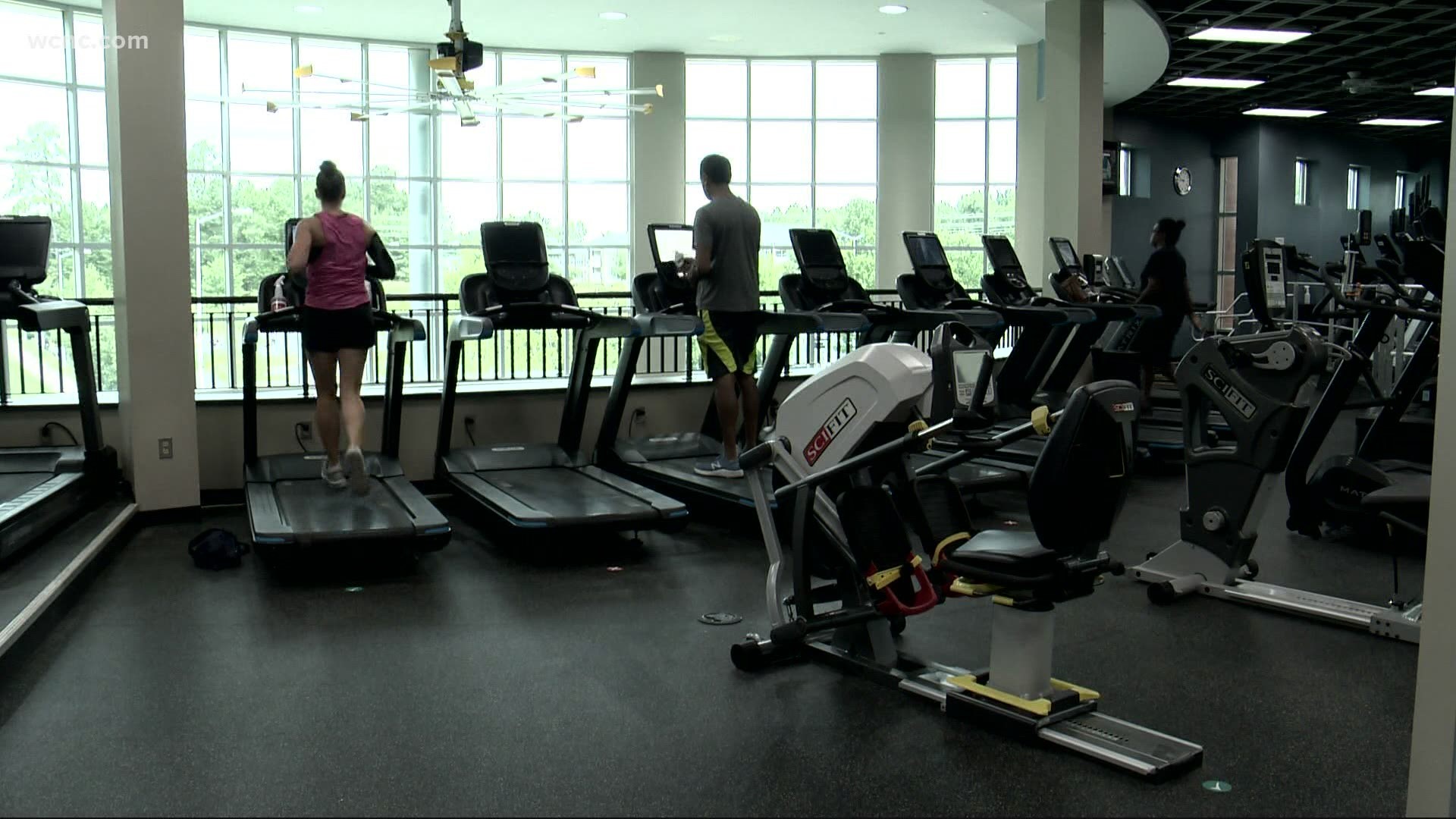CHARLOTTE, N.C. — The coronavirus pandemic has changed the way so many of us view germs and bacteria.
The WCNC Charlotte Defenders team set out to find which common surfaces are harboring the worst of it, by swabbing commonly touched surfaces onto plates of agar — a substance that reveals what organisms were lurking there.
The Petri dishes only reveal bacteria colonies, so viruses like COVID-19 would not appear. But they do show where microscopic organisms, like the virus that causes coronavirus, can flourish.
After a week of incubation, infectious disease specialist Dr. Arash Poursina helped analyze the samples.
“Yeah, I mean, this looks horrible," Dr. Poursina said at first glance.
First up: samples taken from the gas pump.

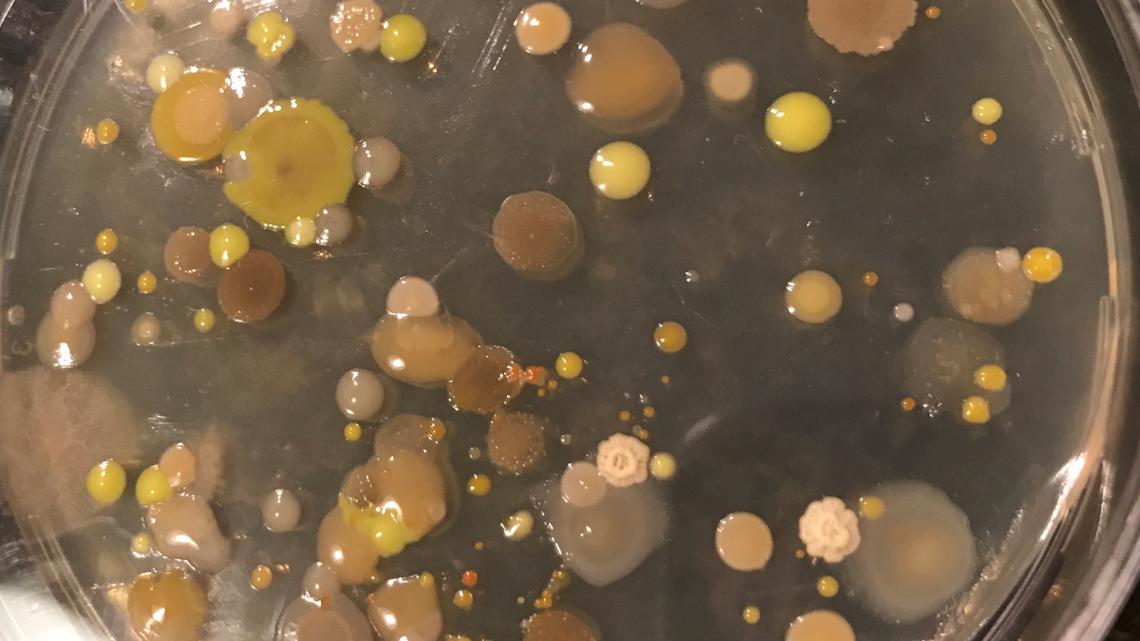
“The yellow stuff and the golden stuff, they are probably staph," Dr. Poursina said of the gas pump swab results. "That can cause very, very serious infections. Also, E. Coli…obviously, people's hands are quite often contaminated with fecal matter. Especially in a gas station, people run in use the bathroom, come out and pump.”
Dr. Poursina also identified E.Coli on the elevator buttons sample.

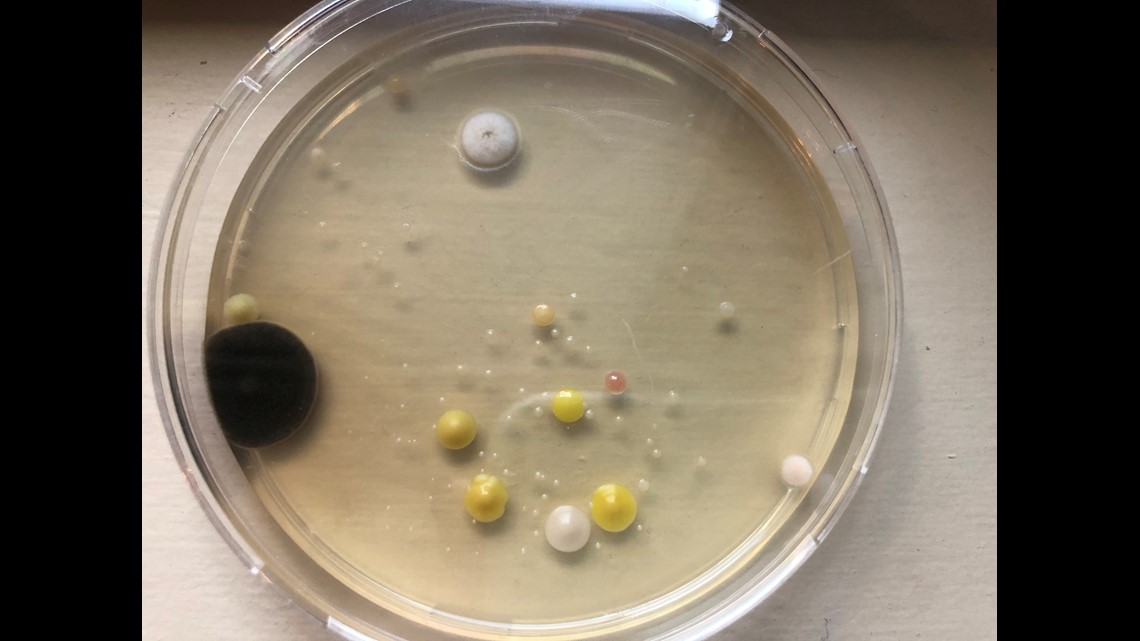
“The pearly white next to the yellow at the top, that is probably going to be E. Coli,” he said. “The black on the side is definitely mold. The yellow round ones is probably staph or MRSA.”
How about the handle of a grocery cart?

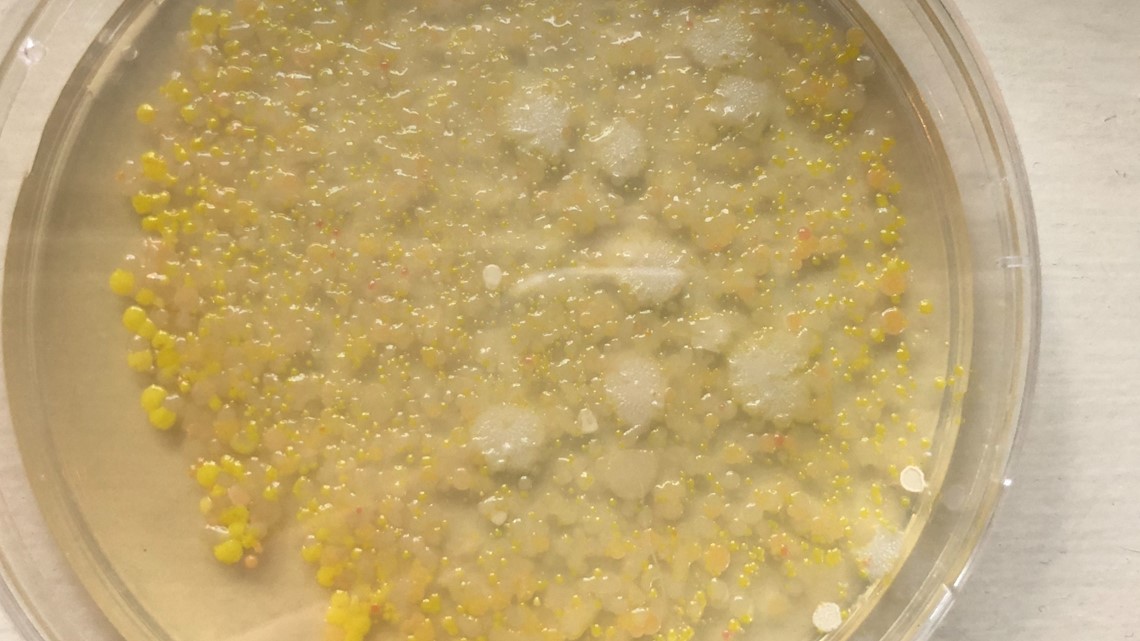
“The mucous-y white-ish colonies, they remind me of an organism called Klebsiella pneumoniae," Dr. Poursina said. "They can be quite nasty. They can cause infections pretty much anywhere in the body.”
Finally, a trip to the recently reopened gym.

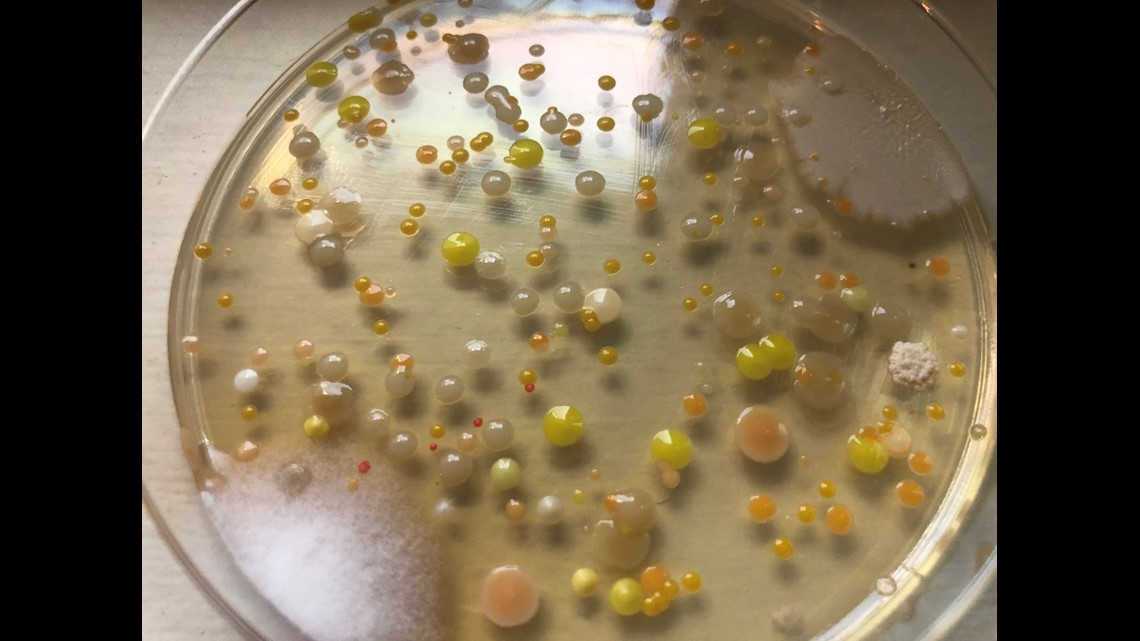

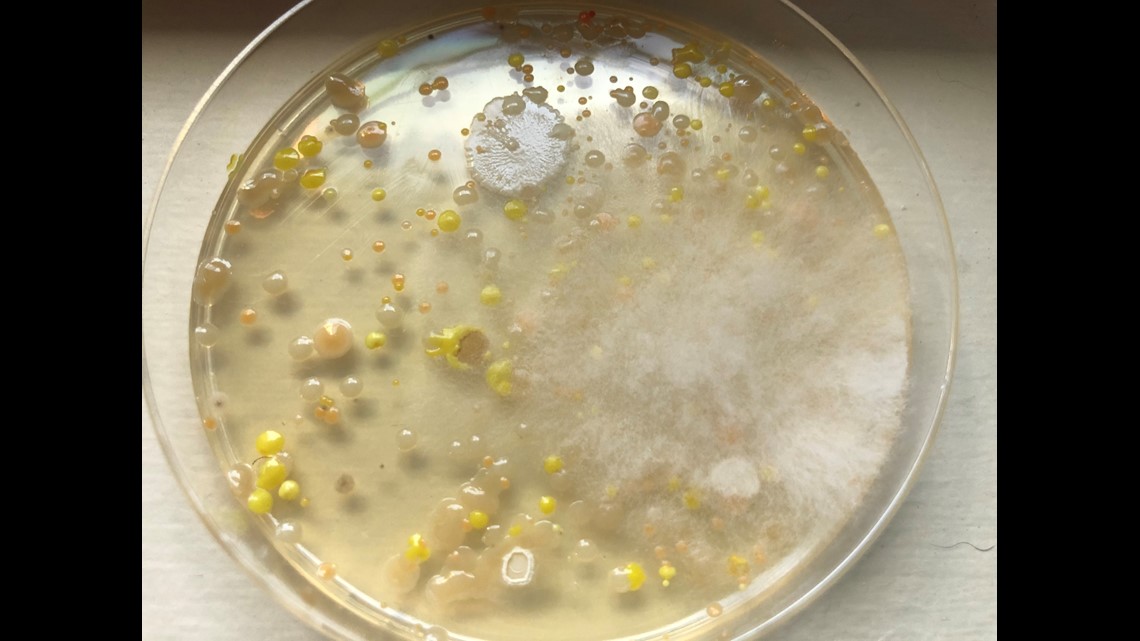
“The treadmill and the gym equipment are probably the nastiest among the stuff you've sent me so far," Dr. Poursina said. "In addition to the klebsiella, and the E. Coli, and MRSA, the staph, there is a couple of colonies that makes me suspicious for an organism called pseudomonas."
"That is a very, very serious species," Dr. Poursina explained. "It causes a huge percentage of healthcare-associated infections and hospital required infections, and it can be quite devastating. It causes a lot of sepsis and pneumonia. Anybody who's immunocompromised is at a huge, huge risk with this organism.”
Dr. Poursina says the findings should serve as a reminder to be proactive about sanitization and general awareness.
“You don't have to rely on somebody else to sanitize equipment before you touch them, you can always carry wipes with you, you can always use hand sanitizer,” he said. "These things are not visible to [the] human eye. And you’re constantly getting contaminated every minute of our lives. So sanitizing your hands before touching anything that you or your loved ones own is the key.”
Dr. Poursina said other little-known germ hotbeds include fridge handles, steering wheels, keyboards, and tv remotes.

